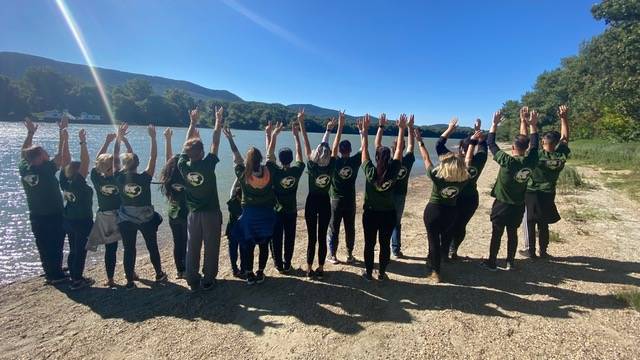Tom Fletcher was expressed during the annual care of his sector known as Ecosoc humanitarian affairs segmentwhich brings together the UN member states and organizations, humanitarian and development partners, as well as the private sector and affected communities.
He said that the theme of this year – renewing global solidarity for humanity – “could not be more urgent. »»
“We need you right now,” he said. “” We are in a moment of conflict, transactional policy, selfishness, division, polarization. And global solidarity – the vital element of what we do – is in retirement. “”
In addition, “at the moment, when the needs are at their highest level, funding is also retired.”
Crises, climate and cuts
Mr. Fletcher reminded the participants “certain uncomfortable truths”, noting that the Middle East “currently vacillates on the edge of a broader war”.
At the same time, the inhabitants of Gaza are hungry as borders, girls in Afghanistan are prohibited from school, the women of Sudan torn by war are experiencing horrible violence, and gangs are terrifying families in Haiti.
This is happening In the midst of the climate crisis “This will lead more humanitarian needs in the coming years than any other factor we are talking about today,” he said.
“Meanwhile, our teams, our humanitarian staff, the bravest of us, do not hesitate to go towards the sound of shots, the sound of danger to lead these convoys through these control points and They are killed in record numbers, while those responsible for killing them move free. “”
“Decisions of life and death”
Only six months ago, Mr. Fletcher launched a $ 44 billion to reach 190 million people worldwide this year.
In the wake of the deepest reductions of all time to humanitarian operations worldwide, the plan was this week “hyper prioritized” to focus on the most critical areas, with $ 29 billion in funding to support 114 million.
He recognized that “we are with the most cruel equations when we make these life and death decisions, literally, who save”.
Humanitian “will save as many lives as possible with the resources you give usAnd they ask the world leaders to give only one percent of what they spent for defense last year.
“It’s not just a call for money, of course. It is a call for global responsibility, for a common commitment to end suffering, “he said.
New humanitarian pact
“We also make this call that we all find a moment to get out of our discussion points and find the individual moment of courage and creativity to support this effort.”
Mr. Fletcher said the humanitarian movement will continue and is to be redesigned from zero.
“We will find new allies, we will find new sources of funding, we will find new ideas, we will not simply distribute the old model. We will also forge a new one. A daring humanitarian pact with the people we serve“He said.
Women at the forefront
The pact will be “more local, leaner, greener” and will understand people on the fronts of the crisis which “know better than anyone they need”.
In addition, the Humanitarian Coordination Forum of the highest level of the UN – The Standing Committee (IASC) – expressed an unequivocal commitment that women and girls will direct this humanitarian reset and will support women humanitarian leaders in this work.
“These leaders, the real leaders of our movement, do not work for the UN or international NGOs. They are not part of the logos, egos and silos of our systems, “he said.
“They have something much more powerful – they are rooted in their communities with the confidence of their communities and an unshakable belief that even in these darkest moments, we can choose to help each other. They are there for us and we must be there for them. “”
Feed effectiveness
THE Economic and social council (Ecosoc) is one of the six main organs of the UN.
Since 1998, he has held the humanitarian affairs segment to strengthen the coordination and efficiency of UN humanitarian efforts.
Previous meetings focused on issues such as the fight against food security and recovery of the COVID 19 pandemic.
Originally published at Almouwatin.com








